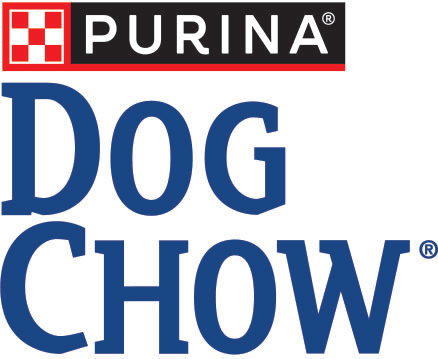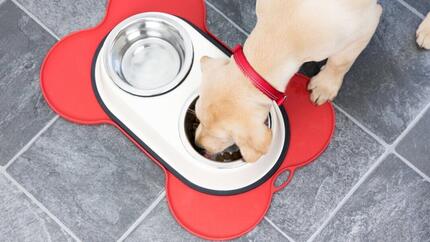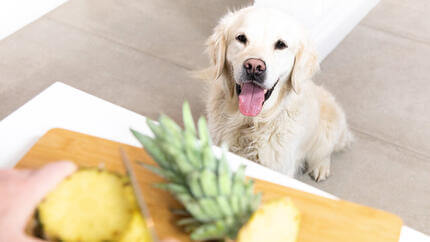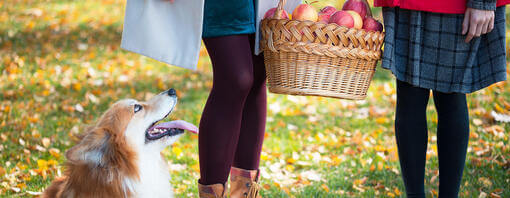
Human foods are not always dog-friendly. A few bites of the wrong ingredient and our dear canine friends might soon be in a world of trouble. Whether it’s an upset stomach or a more severe toxic reaction, dogs can suffer serious consequences from eating food that’s best left to their owners. So it’s natural for owners to think twice before sharing their favourite treat with their pets.
Apples are so often found in our households, whether in the shape of a pie or just lying loose under the apple tree in the garden, so it’s easy to see how a dog might manage to sneak plenty of mouthfuls of this fruit before their owner realises what has happened.
But can dogs eat apples? And are they good for dogs? In this article, we’ll look at some of the best ways to share this beloved fruit with your pet.
Can dogs eat apples?
Yes, dogs can eat apples in moderation. As long as you keep the seeds and apple core away from canine teeth, your pet should be able to enjoy this fruit as an occasional treat. However, due to the sugar content in apples (and other fruits as well), it’s best to ask your vet’s advice if your dog is on a special diet, overweight or suffering from diabetes.
It’s also important to note that pieces of apple can be a choking hazard if they’re too big. When you’re feeding an apple to your dog, make sure to cut it into small bite-sized pieces.
And don’t forget to keep an eye on your pup when they’re trying their very first slice of apple. This way you’ll be able to notice any unusual reactions and, if they do happen, you’ll know to keep the fruit bowl out of their paws’ reach the next time.
Are apples good for dogs?
‘An apple a day keeps the doctor away’... but does this famous saying apply to the vet as well? Well, apples do contain various nutrients that are beneficial not just for us, but for our dogs too. These include antioxidants, vitamins A and C, fibre and potassium. However, if you feed your dog a complete and balanced diet, they should gain all the nutrients they need from that and they shouldn’t require any extra top-up from fruit.
Apples can be good for dogs for another reason as well though: since they have a crunchy texture, they may help to clean dogs’ teeth and freshen up their breath.
Although apples are generally good for dogs, owners should also keep in mind that this amazing fruit comes with a sugar content that cannot be ignored. This means it’s best to only feed apples in moderation. Always follow the general rule that treats should make up no more than 10% of your pet’s daily calorie intake.
Can puppies eat apples?
When it comes to the younger pups in the family, apples might be next on their list of new things to try. The good news is that puppies can eat apples. As long as the apple is washed, the seeds and core are removed and the apple flesh is cut into small bite-sized chunks perfect to munch on, puppies should be able to enjoy this fruit without a problem.
However, keep an eye on your pup just in case they do choke or experience an adverse reaction that requires your attention.
How to feed apples to dogs?
If your dog keeps begging for a bite just as you’re about to enjoy a few apple slices, here is how to share this fruit treat with your dog:
- Wash the apple and remove the seeds and core.
- The peel can be left on. This is the part of the fruit that contains most fibre though, and excess fibre can sometimes cause digestive upset. If your pet has a sensitive tummy, it might be better to remove the peel altogether and only feed small quantities.
- Cut the apples into small bite-sized chunks. Be careful not to feed too big pieces as these can be a choking hazard.
- You can also grate apples or mash them into a purée and add them to your dog’s usual meal.
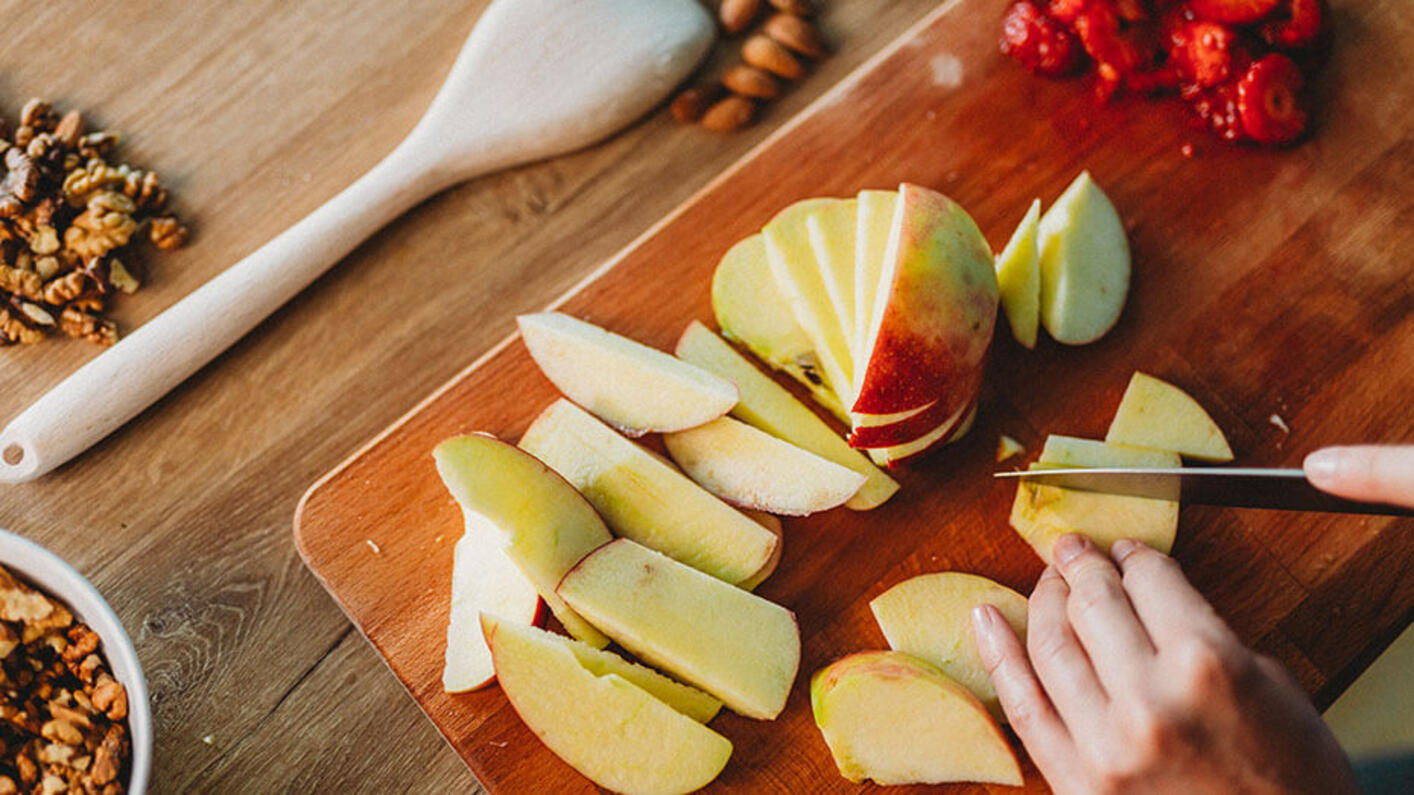
Are apple seeds poisonous for dogs?
You may have heard that apple seeds contain cyanide which is a poisonous substance for both humans and pets. This is true, but it’s also true that the small quantity found in the seeds of one apple is usually harmless. However, it’s still important to stay on the safe side and remove the seeds before feeding apple to your dog, as cyanide poisoning can be very serious.
If you’re worried your dog has had one too many apples unbeknownst to you, here are some of the most common cyanide poisoning symptoms to watch out for:
- Panting
- Difficulty breathing
- Dilated pupils
Make sure you contact your vet if you notice any of these signs so your dog can get help as soon as possible.
Is your fruit bowl full of other irresistible temptations for a dog looking for their next treat? Find out if dogs can eat oranges, whether dogs and blueberries should be in the same room and what you should do the next time dogs and strawberries meet. You may also want to discover the benefits of adding watermelon to a dogs diet.




